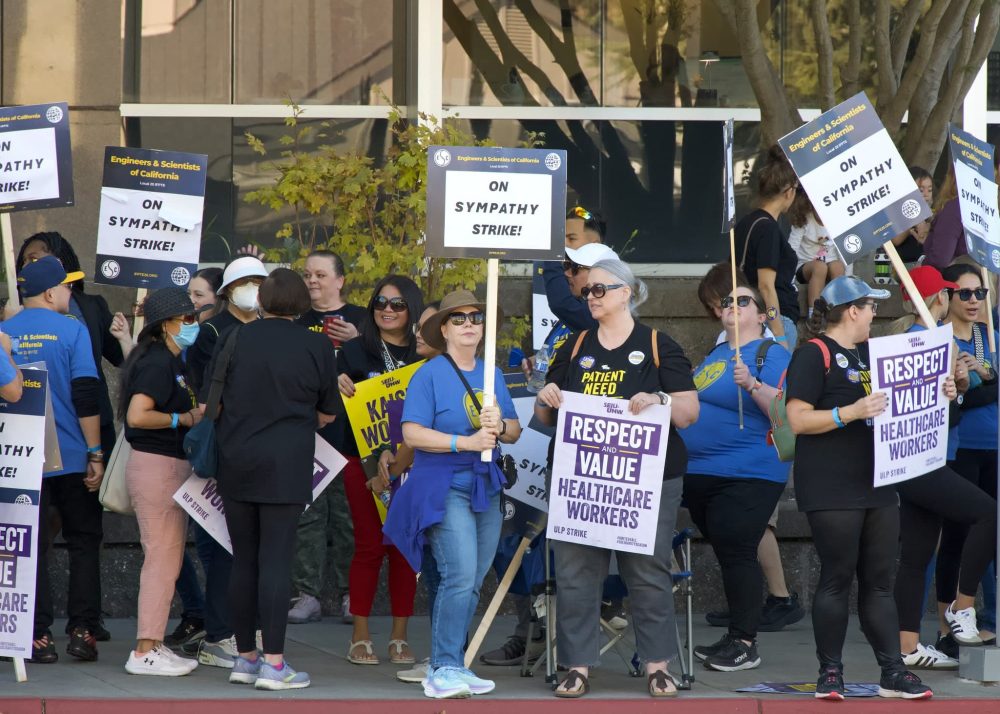Kaiser Permanente has reached a tentative deal with the coalition of unions which represents over 75,000 employees.
This marked the conclusion of the largest-ever healthcare strike in the US.
The strike, held last week, lasted for three days as planned.
Read More: Kaiser To Cut 49 Jobs In Bay Area And Southern California
However, the coalition of unions warned of an eight-day strike next month if a permanent agreement was not reached by October 31.
While not fully disclosed, some details of the tentative agreement were revealed.
The healthcare provider has proposed 21 percent pay raises across all Kaiser locations over four years.
It also offered to establish a new minimum wage for healthcare workers – $25 per hour in California and $23 per hour in other states where Kaiser operates.
They also agreed to address the critical staffing shortage causing burnout in its current employees via an accelerated hiring campaign.
Additionally, the agreement covers an annual bonus program for unionized workers linked to specific performance metrics such as the number of patients receiving preventative vaccinations and the reduction of total blood pressure among patients.
Read More: Kaiser Permanente Workers Called Off The Historic Strike
The coalition of unions represents 40 percent of Kaiser Permanente’s non-physician workforce.
It comprises medical professionals such as EMTs, X-ray technicians, nursing assistants, respiratory care practitioners, and support staff including maintenance and janitorial staff and food service workers.
To determine the fate of the tentative labor agreement, rank-and-file union members will be given the opportunity to vote.
In the event of a “no” vote, the possibility of another strike remains on the table.
Looking to boost your online brand? Create your FREE business profile at WhatBiz? here.
Recent years have witnessed rank-and-file union members rejecting tentative deals negotiated between union representatives and management.
Kaiser Permanente, one of the nation’s largest not-for-profit healthcare providers, operates on a membership-based model rather than a fee-for-service approach.
It provides a broad spectrum of healthcare services to its 12.7 million members across 39 hospitals and 622 medical offices.
This tentative agreement comes amidst heightened labor union activity in the country, especially within the healthcare sector.
Need Career Advice? Get employment skills advice at all levels of your career
Workers have voiced concerns about pay and staffing shortages that are impacting the quality of patient care.
Notably, the Bureau of Labor Statistics has recorded a surge in major work stoppages involving over 1,000 strikers.
One-third of strikes occurred in the healthcare sector from January 2022 through to August this year.
However, healthcare workers constitute only about 9 percent of private sector union members nationally.




